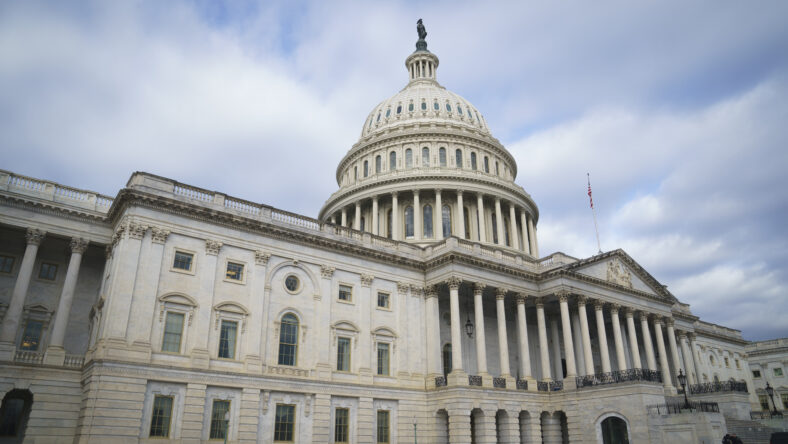La’el Collins Likely Out for Sunday Game Against Giants. His Lawyers Admit It’s Doubtful He Would Play Even If Judge Reaches Decision Tonight.
It’s unclear if Judge Amos Mazzant will issue a decision today but it seems doubtful at this point. To gauge how urgent the matter is, Mazzant even asked Collins’ attorneys if he would even be able to play at all Sunday given that the Cowboys likely already submitted lineups. Eventually Collins’ attorneys caved and said his likelihood of playing this weekend is doubtful. At that point Judge Mazzant said he would take the issue under advisement which our reporter Frank Cawley, who owns the firm Whitehurst & Cawley, thinks this means the Judge will take his time in issuing a decision given the fact that it’s already late on Friday. Cawley got the impression that the Judge was asking about Sunday’s game to see how much time he could take in making his determination.
Cawley was the ONLY person in the Courtroom listening to arguments being made by the NFL’s attorney Daniel Nash and La’el Collins’ attorney as the Cowboys starter asked the Judge for a Temporary Restraining Order to allow him to play in this Sunday’s game against the New York Giants, only to admit, doing so would be unlikely.
Collins has already served three games in a five-game suspension issued by the NFL arbitrator for missed drug tests under the league’s substance abuse policy. Missing this weekend’s game would make it four which means only one game would be left on the suspension. The fact that only one game is left, makes it unlikely Collins would be able to show the irreparable harm that’s necessary to demonstrate to justify a temporary restraining order.
NFL attorney Nash was thoroughly questioned by the Texas Judge, who previously granted an injunction to Ezekiel Elliott, in his suspension for alleged domestic violence, which was later overturned by a New York Judge. The Judge even mentioned Elliott’s case numerous times to draw comparisons.
Elliott’s case and Collins’ case rest on the notion of fundamental unfairness, which is the common law legal standard for a court’s willingness to disturb an arbitration award. Absent a finding of fundamental unfairness in the arbitral process, Courts do not like to get involved in arbitrations because they are bargained for in the CBA by outside parties and serve to keep discipline decisions by corporations out of court. Part of the idea of creating an arbitration process is to make the internal discipline process more efficient and cost effective for all parties and waive the right to seek legal remedies for those decisions in a court of law.
Today Judge Amos Mazzant asked NFL attorney Daniel Nash, what the limits of fundamental unfairness are, to which Nash responded that fundamental unfairness is not a basis to overturn an arbitration award. This is a controversial stance considering that there is legal dicta, including from Mazzant himself, creating fundamental unfairness as a factor in determining whether to overturn an award.
Mazzant wanted Nash to address the fact that the arbitrator listed an alleged four-game suspension against Collins that never occurred, in his decision. The Judge asked whether there would have been a finding by the arbitrator of a five- game suspension without mention of the incorrect information regarding the four-game suspension. Nash said he could not read the arbitrator’s mind and know how he would have decided without considering that fact.
Next the Judge asked, what if the arbitrator didn’t follow the policy in issuing a five-game suspension for Collins? This fact is relevant because Collins claims the substance abuse policy, as amended in 2020, doesn’t specify a suspension for missed tests. Nash said it still wouldn’t be a basis for disturbing the award because the arbitrator’s decision was based on the arbitrator’s interpretation of the policy, which is allowed.
The arbitrator added an additional one-game suspension for the allegation of bribery by Collins, which Collins denies. The Judge asked where bribery warrants a suspension under the policy and whether bribery falls under the policy at all. The Judge questioned whether the arbitrator went outside his authority by using bribery to enhance the penalty. The Judge pointed out that the arbitrator felt the bribery was to avoid future tests but had nothing to do with current tests, hinting that the bribery allegation should have been handled separately.
Next the Judge took on Collins attorney, asking why they waited to file for a TRO since three-game suspension was served already out of the five games. Collins responded that Collins playing could be a determining factor in whether the Cowboys win or lose. He said the public wants to see the best team on the field.
The Judge wanted a guarantee he would even be played by the Cowboys and Collins’ attorney Levi McCathern said he believed the team would play Collins this weekend if he was allowed to play but later contradicted that statement when the Judge pressed him on the fact that lineups had likely been submitted to the League.
Check out founder Amy Dash’s legal take on how Zeke’s case could influence Collins chances.
What Are the Odds La’el Collins Wins?
Categorized:NFL Breaking News LOJ Exclusives The Latest



